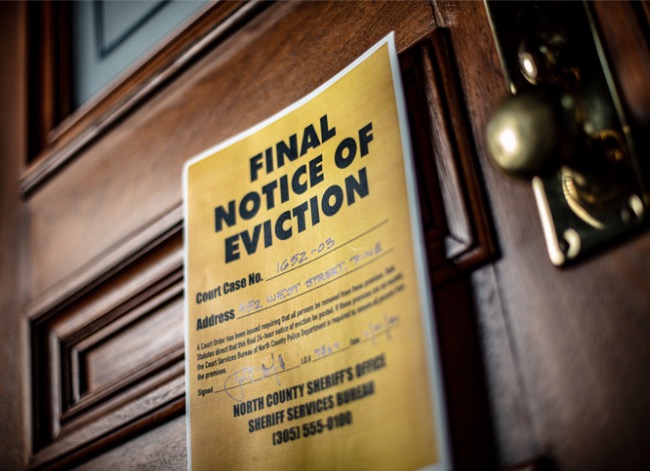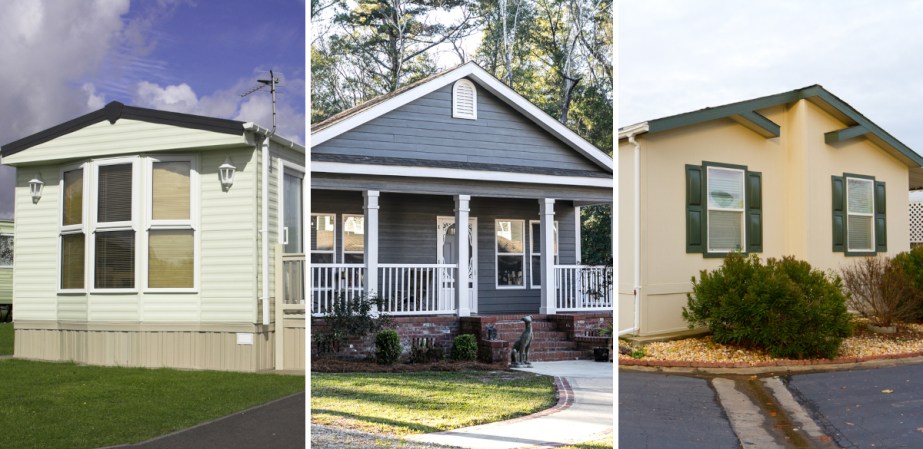We may earn revenue from the products available on this page and participate in affiliate programs. Learn More ›
In 2020, emergency eviction bans came amid a rash of layoffs and pandemic-related work shutdowns that left millions of American renters without the funds to pay their rent. As a part of the federal government’s CARES Act of 2020, tenants who couldn’t pay their rent due to lost income were granted a reprieve from eviction. Now that the few remaining eviction bans are set to expire, what will happen to tenants who are behind on their rent? And what does the rental market look like for investors in the year to come?
Eviction rules vary by state.
Although federal eviction bans have expired, a few state bans will continue to the end of 2021 and a few more will last into 2022. Additional protections are offered by a few states, including Massachusetts, which does not permit evictions if the tenant is currently applying for rental assistance, or New York, which, according to online legal guru Nolo, has extended the ban on evictions for some tenants until January 15, 2022. For the current status of state-specific protections and rental assistance programs, check out Nolo’s website.
Rent is likely to increase.
Both the sales prices of homes and rental costs are likely to increase, according to Realtor.com’s housing predictions for 2022. In fact, the cost of rent is predicted to rise more than the cost to buy a house next year. The real estate authority expects a nationwide rent increase of around 7.1 percent. For renters who have long-term leases, landlords typically can’t increase the rent until the lease is renewed, but read your lease agreement for specifics.
RELATED: 9 Things You Shouldn’t Hide From Your Landlord

Rentals will be in short supply.
Federal rental assistance was available for landlords who suffered financial setbacks when tenants couldn’t pay, but those state-distributed programs often ran out of money quickly, so there wasn’t enough to cover all rent shortfalls. Frustrated and strapped for cash, some landlords sold their properties, and a number of those homes were purchased by families intending to live in them rather than rent them out, which reduces the number of available rentals.
RELATED: 10 Things You Should Never Do in a Rental Home
It may be more challenging to meet rental requirements.
Landlords who got stuck paying the bills on rental properties but could not collect rent or evict non-paying tenants are more likely to scrutinize potential renters now. The Motley Fool advises landlords to strengthen their tenant-screening processes to reduce financial risk. Renters looking for a place to live should expect to have their credit reports and employment history analyzed. They may also have to produce multiple financial references before being approved as tenants.
Landlords can sue for back rent.
The temporary eviction bans were intended to help give renters more time to pay their rent, but they were not a rent-forgiveness program. As soon as the bans expire, landlords are once again free to file for eviction. In addition, they can file a civil suit against renters who did not pay during the ban. If the court awards a landlord a judgment for back rent, the landlord may garnish the former renter’s wages.
RELATED: The Parts of Your Property You Can (and Can’t) Rent to Tenants
Rental assistance will still be available in 2022.
With rising inflation, a lingering pandemic, and increasing interest rates, many renters and landlords simply can’t make ends meet. Rather than imposing new eviction bans, many states are creating programs to assist tenants and landlords. The Consumer Financial Protection Bureau offers an interactive tool for those looking for additional help in paying for rent.

What should renters do in 2022?
Renters who have been unable to pay rent during the pandemic are likely looking at eviction when the bans expire. If this is the case, it is in the renter’s best interest to talk to the landlord and try to work out a payment plan if possible before the landlord files a lawsuit, according to CNet. If the eviction process has started, obtaining legal advice is recommended, and the American Bar Association can help renters find low-cost or free legal help to assist them with remaining in their homes. With the cost of both rent and house values rising, staying put if at all possible may be the best option in 2022.









